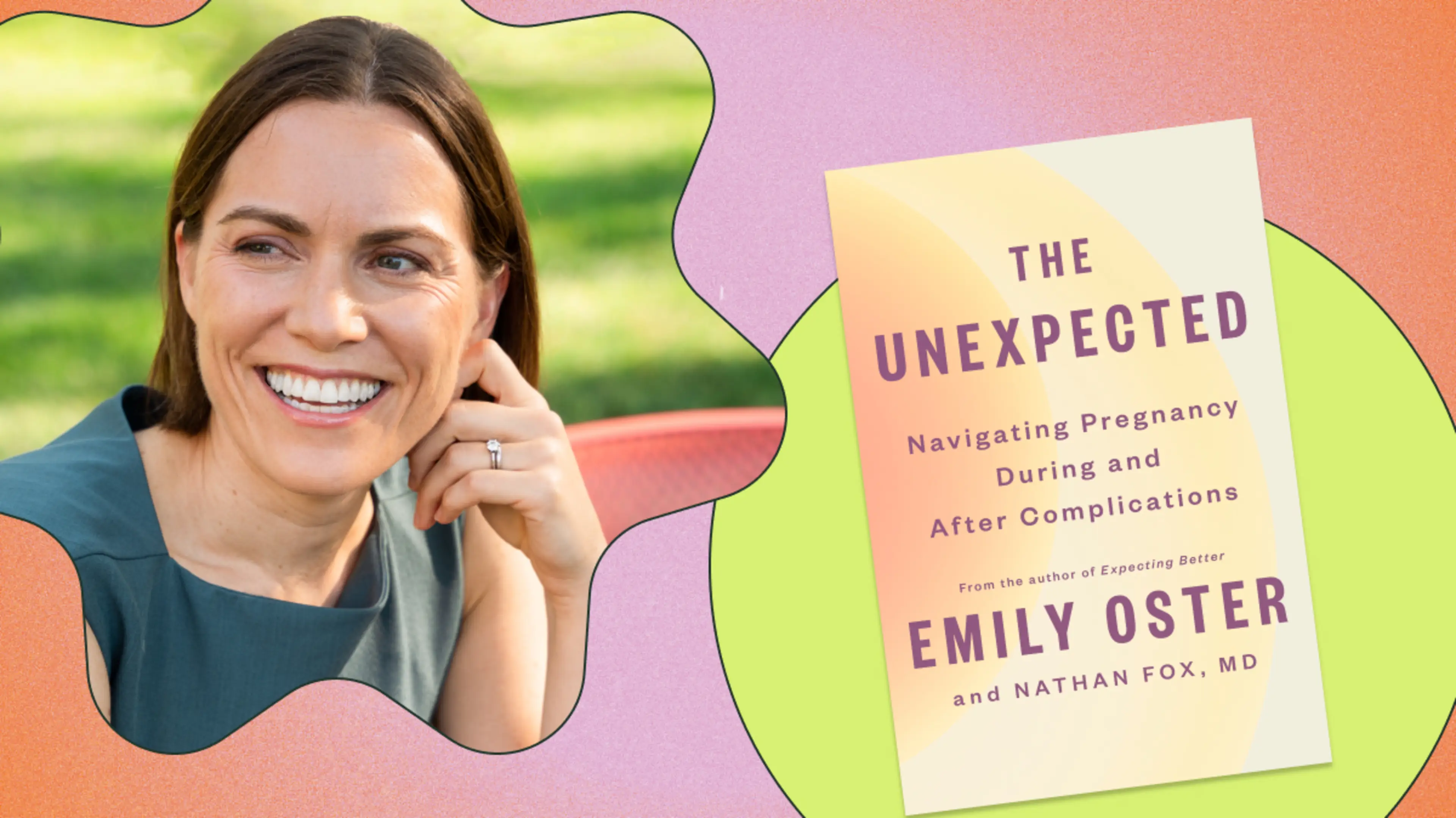Life can feel like a series of endless decisions. We’re constantly confronted with things like, should I get extra cheddar on my salad or go for broke with a gooey grilled cheese? Or, is today a sweatpants day or a real pants day? (Just me?) To be fair, most of those are small choices that don’t take up a ton of brain real estate. But there are a few life decisions that are truly big. Huge, really, and maybe none more so than deciding whether or not to start trying for a baby. If you have a partner and you’re both on the same page, great! But what happens if one of you is on the fast-track to parenthood and the other is just…not?
Let’s be honest, most people never feel 100 percent ready to have a baby, says Kristen Mosier, a licensed marriage and family therapist in New Jersey. “It’s important to normalize that there are going to be fears and hesitations going in because it’s a huge life decision, it’s very life-changing,” she says. It’s also pretty common to not be in complete agreement with your partner about when you’ll be ready as a couple.
For Yulia Saf, a 35-year-old travel blogger based in Lisbon, Portugal, becoming a mother was something she was inherently drawn to, but her partner had concerns about timing and being mentally ready for such a big change. “At first it brought up a myriad of feelings, frustration, sadness, and even fear that we might not be on the same page about our future together,” she says.
People think about this question very differently, says Colleen Marshall, a licensed marriage and family therapist and vice president of clinical care for Two Chairs. “Some people approach it as when they're financially ready, so they’re waiting for a certain milestone in their life or when they have a certain amount of reserves or money, while other people approach it as emotionally ready,” she says.
As long as you can have productive conversations, it’s all good. But things can veer into ugly town if you’re not able to clearly communicate with respect and compassion, says Mosier. If that happens, defensiveness and resentment can leach into how you talk to one another, effectively shutting down any conversation.
To avoid that situation, here are a few steps you can take to check in with yourself, start a conversation with your partner, and make small shifts in your communication style that can help you both find a path forward.
Get Really Clear About Your Own Goals and Values
Often having kids is a distant ‘yeah, I want that someday’ goal—until it isn’t. Whether you’re starting to think about your age, worried about potential fertility issues, or you’re at a place in your life that just feels right for taking the leap into parenthood, there is no guarantee that your partner is making those same emotional strides. This is often the case if a couple met when they were quite young and either didn’t talk about kids or assumed it would happen at some point later in life. “That can become a problem when you start getting to an age where there is more pressure on starting a family,” says Vanessa Bradden, a licensed marriage and family therapist and owner of Lakeview Therapy Group in Chicago, and spokesperson for the American Association for Marriage and Family Therapy.
That’s why it’s important to have these conversations early in a relationship, says Marshall. “We get so caught up in the ‘I love this person, they’re so much fun, I like spending time with them,’ but it’s really the life goals that keep relationships together,” she says. “So, for those who haven’t had the conversation, have it now, especially if you’re dating.”
If you’ve been in a relationship for 10 years or you’ve only been dating for a few weeks, take this as a sign to do a little soul-searching. What do you value most? What are your must-haves? What are your deal breakers? “You want to get really clear about your most important value first, and then try to decide your behavior from that perspective,” says Marshall.
“If your goal is to have a strong marriage, is that more important to you than having a child?” says Marshall. If not, then you might be sacrificing a more important value for a smaller value. Once you do that work, it’s easier to talk about your feelings with more intention. “It might actually increase the conversation around, ‘I love you, but I have to have a child, so I’m going to need to figure that out with or without you, because it’s something so core to who I am,’” she says.
Depending on how your partner feels, you can talk through why they may be feeling resistant or anxious about moving forward and go from there, says Bradden.
Approach These Conversations with Compassion
It’s easy to slip into the blame game if you feel like your partner is getting in the way of your life’s biggest dream. Advice guru Brene Brown has a concept called generous assumption that can be very helpful when having these tough conversations, says Marshall. This means starting any dialogue with the assumption that your partner actually wants what is best for you, for your relationship, and for the future of your family.
“What happens when we feel challenged, emotionally pushed, or unheard, is we can get defensive and mad, and start feeling like your partner is selfish or being a jerk, or not caring about your feelings,” says Marshall, “when what’s really happening is that you both are thinking about this from a different perspective, and you have different priorities at the moment, and you need to figure out how to come together.”
Another trick? Use “I” statements when setting clear boundaries for yourself. “By starting with ‘I’ statements, you’re saying what you want and why it matters to you rather than challenging your partner about why they’re not considering your feelings,” says Marshall. For example, instead of saying, ‘I’m mad at you because you’re not fulfilling my wishes’ you can turn it into ‘I would really like to have a child, it’s a very important goal in my life to be a mother, or father, or parent, and I worry that if I don’t have a child now, I never will.’
On the flip side, your partner might say something like, “I don’t want to have a child right now, and the reason is I’m really worried I won’t be a good parent,” or “I’m worried about finances,” or “I don’t feel emotionally ready,” says Marshall. That small shift can take the edge off and keep the lines of communication open.
If you are finding it difficult to assume the best as you talk through this emotionally charged topic—or you’re getting intense let’s-make-a-baby vibes from your partner—finding a couple’s therapist to help facilitate is a good step. “It makes room for people to have really thoughtful conversations,” says Bradden.
Talk Through Your Anxieties and Fears
If your partner has a habit of saying ‘I’m not ready’ or ‘I don’t think now is a good time’ without any explanation, it’s probably not winning them any brownie points. But allowing them to voice their fears without judgment can do two things: help them to open up honestly so you have a better understanding of what’s holding them back, and allow you to feel more compassion for why they are hesitant to make this huge life transition, says Mosier.
If you’re the nervous Nellie, sometimes just expressing these feelings is enough to get your partner on your side. Saying something like, “I love you, you are the most important thing to me, and us having this conversation about having a baby is pushing me to a place that I don’t feel comfortable, and I don’t want to end up making a decision I regret and that somehow hurts our marriage in the future.”
If you’re the one who wants a baby yesterday, you can feel free to express the urgency behind your desire, particularly if you’re coming into this conversation later in life and your biological clock is getting louder by the day. “It’s a very valid concern because we know that fertility starts to decline in your 30s, and I think the sooner you know [your options] the better,” says Mosier.
In any case, really hearing your partner’s worries will go a long way. “We want to validate each person’s concerns, because having a child is such a huge decision,” says Bradden.
Consider Ways to Help Ease Each Other’s Anxieties
Once you’ve hashed out all your collective fears, you can start to slowly address each person’s concerns. Best case scenario? Sometimes just by talking about having kids your partner will get used to the idea, says Marshall. But if your partner has specific goals they want to achieve before starting a family, you may need to set expectations and clarify, says Bradden. “Then we need to be really concrete and really explicit about the resources that are necessary to support those scenarios,” she says, “like what would you need to happen first before we get to this point?"
That could mean making small changes to save up a nest egg that would make your partner comfortable with the financial reality of having a baby, or working through more deeply-rooted fears and anxieties in individual therapy to help you both feel more emotionally ready.
For the person who wants to have a baby, taking steps to optimize fertility could be one way to ease some of those clock-ticking fears. Things like tracking your ovulation, getting your sperm count tested, having a pre-pregnancy ultrasound, or even setting up a consultation to freeze your eggs can help bridge the gap as you figure out a way forward with your partner, says Bradden. “Realistically, there are so many unknowns that we’re not going to ever get rid of all the anxieties, but we can do things to lessen some of them,” she says.
Find Ways to Cope with Your Own Feelings
Even if your partner is telling you “not yet” in the most respectful way possible, that won’t necessarily protect you from feeling disappointed. “It’s okay to feel compassion for and understand where your partner is coming from and at the same time, to just feel really disappointed and impatient to move to that next stage,” says Mosier. “You can sit with both those feelings, and maybe express them to someone close to you who can help you talk through those,” she says.
The most important point is to not let those feelings fester. “The relationship can start feeling crowded out by this issue, and then couples stop having fun with each other,” she says.
For the partner who isn’t ready yet, just know that you might cycle through feelings of being ready one day and then not ready the next. “I tell people, it’s okay, because it’s not a straight line to your answer. You’re going to have feelings that move back and forth. It’s a circular process,” says Bradden. If they’re still very confused, it’s definitely a good idea to talk with a therapist or friend to figure out what’s behind your apprehension, says Mosier.
Negotiate and Find a Middle Ground
The good thing about having all these open conversations is you’ll start to see where you align, says Marshall. Maybe the conclusion is that you both want to have a baby, just not today. The goal is to then come up with a compromise. “You each want to ask yourselves, "What is important to me? Why is that important? What are the boundaries that I’m willing to live within and what am I not willing to live with?” says Marshall.
For most people that means coming up with a timeline. Maybe you decide to start trying in a year, or perhaps you agree to bring this conversation back up in six months.
Things get tricky when the hesitant partner doesn’t have a timeline in mind. “It’s important to really get clear about what it is that you want and what the expectation is,” says Mosier, because otherwise your partner is left with a lot of uncertainty.
While Saf and her partner made it a point to have deep and honest conversations around having a baby, even setting aside dedicated time so they could talk without distractions, they eventually enlisted the help of a couple’s therapist to find a path forward. “This was a turning point for us,” says Saf. “It helped us understand the importance of finding common ground and respecting each other’s timelines.”
Now, Saf and her partner have a 2-month old son, and a boatload of personal growth to take with them on their new parenthood journey. “We got there by embracing patience, maintaining open lines of communication, and holding onto empathy for each other’s feelings.”
Don’t be Afraid to Make Tough Decisions
Look, sometimes you get into a relationship without having all those important conversations until it’s too late, or your feelings change over time. All of that is fine, but it does mean you’ll have to make some hard choices. “Is it more important to me to be in this committed relationship with someone I love or is it more important for me to have a child?” says Marshall.
If your partner remains non-committal after a year of these conversations, it might also mean having to examine what you want in life. “At some point, we have to make a very hard decision, and I think if you shy away from that decision, it just prolongs the painful process,” says Bradden.
It’s a lot of emotional work, but that’s something everyone has to decide for themselves. Nobody knows that better than Joseph Tito, author of The Twin Diaries and The Dad Diaries, who embarked on a journey to parenthood through surrogacy with his then-partner. After two failed embryo transfers with the surrogate, Tito noticed that his partner’s heart wasn’t exactly in it. “I was seeing that, in reality, he didn’t really want this.”
Tito had a choice. Move on with his lifelong dream of starting a family by himself, or hang on to this relationship. “For a split second I was kinda like, ‘oh my god can I really be a single dad?’ but then I realized, this is something I’ve wanted my whole life and I’m not going to stop.”
He and his partner broke up, and shortly after, the surrogate got pregnant with twins. It took two challenging years of single dad life and a complete career change before Tito met his now husband and got the family he always wanted. “We just got married last year,” he says.










